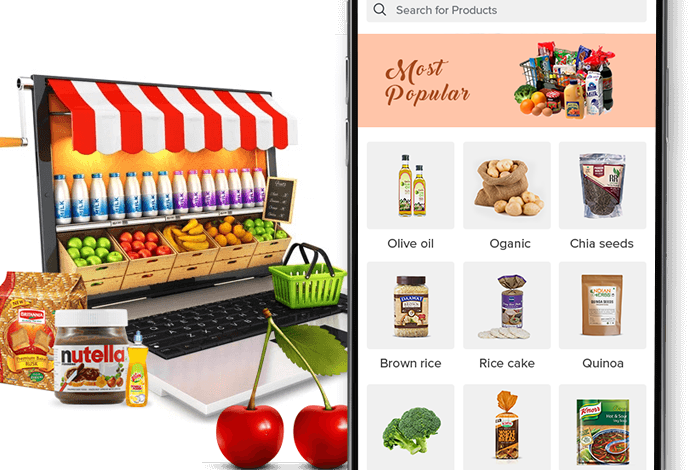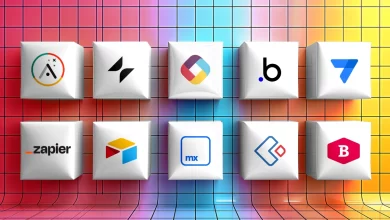
Grocery items are any food goods that a community requires on a constant schedule. Food goods, both consumable and non-perishable, are included. Fresh veggies are available in grocery shops, and such inventories are frequently replenished on a daily basis. Typically, these resources are needed to support grocery shop managers to operate offline and cope with all of the issues. Grocery stores that have grown into online enterprises now provide excellent offline work as well; however, this is primarily restricted to logistics.
Read Also: Pipe Tobacco Online: What Are the Benefits to Buy?
Whenever an offline store is embedded with digital communication,
the majority of the stuff in the retail outlet can possibly access more consumers. However, in the corporate sector, more accessibility and flexibility are always desirable. To expand such functions, online grocery stores may now use mobile applications.
Because of technological advancements, internet supermarkets often outperform traditional grocery stores. This is because such technology frequently helps grocery shop customers as well. Consumers frequently would not like to take their groceries, and they prefer the ease of rapid payment even in supermarket deals. All of this and more are readily accomplished with smartphone platforms.
Mobile applications boost accessibility and quickly increase customer experience ratings for grocery shop operators who have had an online website. Customer experience attracts more customers to the firm, which improves sales and profit.
How smartphone apps benefit both customers and online food stores
Due to advancements in computing power, modern smartphone apps can manage a wide range of tasks effortlessly. Making the internet grocery industry more attractive is one such effort. The term “real worth” refers to both financial and functional worth. The preceding are some of the numerous ways that mobile applications benefit both consumers and online grocery shop managers.
Order Management Protocol
This function is indeed the one that raises the bar in supermarket logistics management. When incorporated into a mobile app, this capability benefits grocery ordering system operations in two distinct ways. First, the consumer is shown an exact map of the order’s location and when it will be shipped to them.
The second advantage is that grocery shop managers can keep a record of each and every request and provide customers effortlessly. If something problem occurs on approach, the grocery shop will be notified promptly and necessary action is being taken.
·More effective inventory control monitoring
The online grocery store must manage the diverse inventories that it relies on for regular delivery. The smartphone app is in charge of ensuring that all inventories are present. This benefits the key workforce divisions in grocery ordering and delivery. This is the advantage from the standpoint of the grocery store.
The productivity of the operation is improved from the consumer’s perspective. Customers will never get incorrect or deferred shipments. This is due to the fact that the smartphone app has an account management tool for both the retailer and the consumer. The retailer can take account of several orders at the same time. Customers unify the numerous appeals they get from the grocery store.
·Payment Solutions That Are Faster and More Accurate
This is really a useful feature for both the online supermarket and the customer. This function helps users eliminate the danger and bother of paying in cash. It moreover allows them to maintain accurate financial records.
The digital grocery store, on the other hand, benefits enormously from the convenience of such contactless transactions. The smartphone app indirectly assists the grocery shop in analyzing the data obtained.
·Customized and Customer Behaviour Assessment
This functionality is more important for the online marketplace. Because a smartphone app can analyze huge amounts of data, it might be helpful to the retailer. The data may subsequently be exploit to customize each customer’s shopping list. Non-personal data can be studi for personalization, but it should be kept safe.
Customer information may then be evaluat to determine customer preferences and purchasing habits. The consumer benefits from menu personalization in this case. This implies that the buyer is offer alternatives that they want, which is undoubtedly beneficial to them. Customization is continuously updat, maintaining consumer satisfaction levels.
·Everybody Benefits from Improved Accessibility
Mobile applications clearly make shopping order and delivery systems more accessible, and this simplicity is felt by both parties. On the business owner’s end, the mobile app allows for more precise order tracking and easier payment platforms. It is very simple to deliver personalized order arrival alerts to customers.
On the customer side, the improved convenience lies in the operation of ordering groceries remotely. The system may easily identify the consumer and give solutions to them with simple signup using the username and password information. Cash on delivery and contactless transactions make it very simple for the consumer.
·Functions as a Corporate Branding Strategy
Finally, the on-demand grocery app development aids the digital grocery store in establishing a brand for itself. Consumers identify the quality standards with the store’s name, which helps the firm flourish. The majority of supermarket goods are perishable.
However, when the online business manages the grocery delivery system successfully, the smartphone app collaborates with the company to promote its brand. Branding builds customer trust and raises the chance of corporate success.
·Improved Search Techniques
This main aspect must be functional while remaining basic. It must make it easy for users to locate items via the app. The app developer must integrate filtration of various sorts in a decent way to make it fluid and comfortable to use in order to assist the user find their preferred element of the array faster. Presently, the app developer also allows users to search via voice commands or by dynamic content. Customers are completely satisfied.
·High Promotional Prospects
Grocery delivery app development enables tailored and flawless interactions, even when customers sign out after placing successful orders. Store owners may deliver customized service supports and bargains to each consumer using the application’s Push Notification capability.
Furthermore, depending on the users’ data, surfing history, and purchase patterns, company administrators may create successful marketing campaigns both individually and remotely to increase client purchases. With mobile applications, new features are regularly added, so the opportunities are limitless.
Conclusion
As we can see, on-demand grocery delivery solutions are critical for businesses looking to sell products. Due to the sheer increased convenience they provide, smartphone apps are extremely popular among the consumer population.
Statistics from all around the world demonstrate that grocery shopping apps with delivery services are the way of the future. Start a grocery delivery business for better growth and branding.




